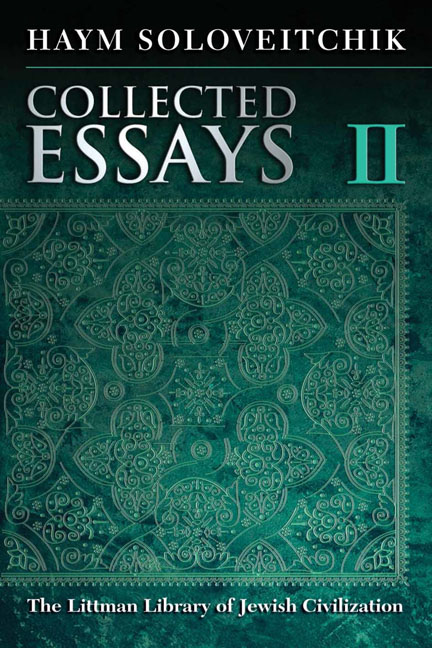Book contents
- Frontmatter
- Dedication
- Preface
- Acknowledgments
- Contents
- Note on Transliteration and Conventions Used in the Text
- PART I RE-EVALUATION OF ELEVENTH-CENTURY ASHKENAZ
- PART II MARTYRDOM UNDER CROSS AND CRESCENT INTRODUCTION
- PART III MISHNEH TORAH
- Bibliography of Manuscripts
- Source Acknowledgments
- Index of Names
- Index of Places
- Index of Subjects
8 - The Palestinian Orientation of the Ashkenazic Community and Some Suggested Ground Rules for the Writing of Halakhic History
- Frontmatter
- Dedication
- Preface
- Acknowledgments
- Contents
- Note on Transliteration and Conventions Used in the Text
- PART I RE-EVALUATION OF ELEVENTH-CENTURY ASHKENAZ
- PART II MARTYRDOM UNDER CROSS AND CRESCENT INTRODUCTION
- PART III MISHNEH TORAH
- Bibliography of Manuscripts
- Source Acknowledgments
- Index of Names
- Index of Places
- Index of Subjects
Summary
AS I EXPLAINED in the preceding essay, it is currently a truism of Jewish historiography that the roots of Ashkenaz lie deep in Palestinian soil; indeed, some say, it was not until the mid-eleventh century that the Babylonian Talmud (Bavli) became normative. In Chapter 7 I addressed the underlying assumption of this theory; here I would like to express the doubts that I have long entertained about this scholarly commonplace.
Let us begin with the methodological problems in the claims for the Palestinian origins of Ashkenaz.
Assume that there are roughly 200 laws regulating the observance of the numerous commandments relating to Passover; that is to say, the elimination of leavened bread, the preparation of matzah, and the observance of the seder. Suppose two or three are discovered to reflect Palestinian law; what this would mean is that, at most, some 2 percent of the Ashkenazic practices of Passover have Palestinian roots. However, no religious culture is a monolith, and a 2 or 3 percent admixture of the religious practices of other cultures is only natural. For example, in the lighting of Hanukkah candelabra, a field with far fewer laws than Passover, the Jews of eastern Europe follow the ruling of the Sephardic scholar Maimonides, and Sephardic Jews follow that of the famed medieval Franco-German glossators known as the Tosafists!Other examples of such crossovers could easily be provided. All this is common knowledge; yet no one would contend that east European religious culture has Sephardic roots. For it is understood that to speak of influence one must have critical mass, a sufficient number of examples to rule out mere happenstance as the source of the anomalous results.
Critical mass, however, is precisely what has been lacking in the numerous articles published on the Palestinian origins of Ashkenaz. Most articles take an instance or two from a specific area, let us say, the Sabbath, another instance from a second halakhic field and a third from yet another field, show that they are of Palestinian origin, and then draw broad inferences. There is no thesis in the world which cannot be proven by such a method of sampling.
- Type
- Chapter
- Information
- Collected EssaysVolume II, pp. 145 - 149Publisher: Liverpool University PressPrint publication year: 2014



